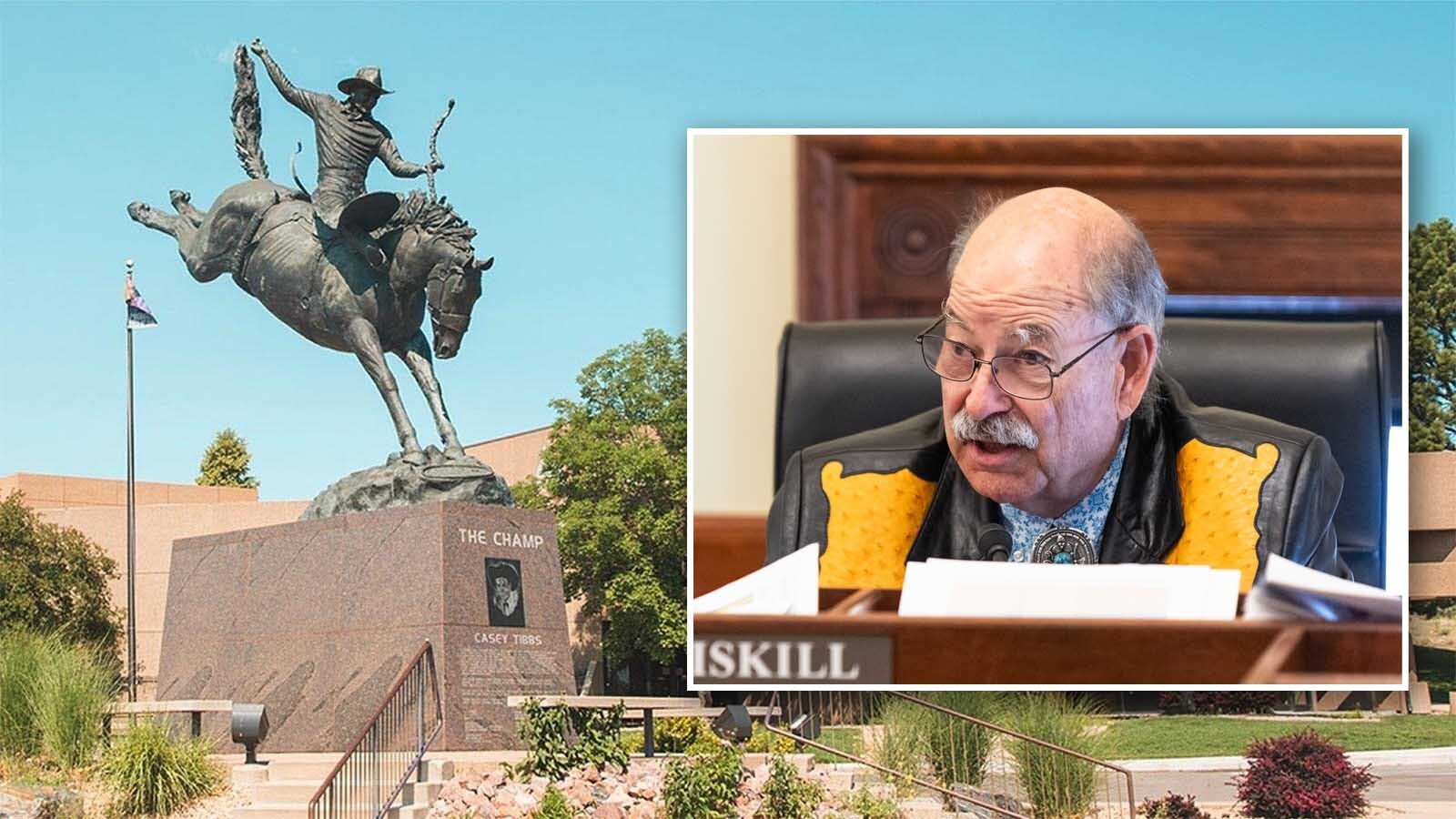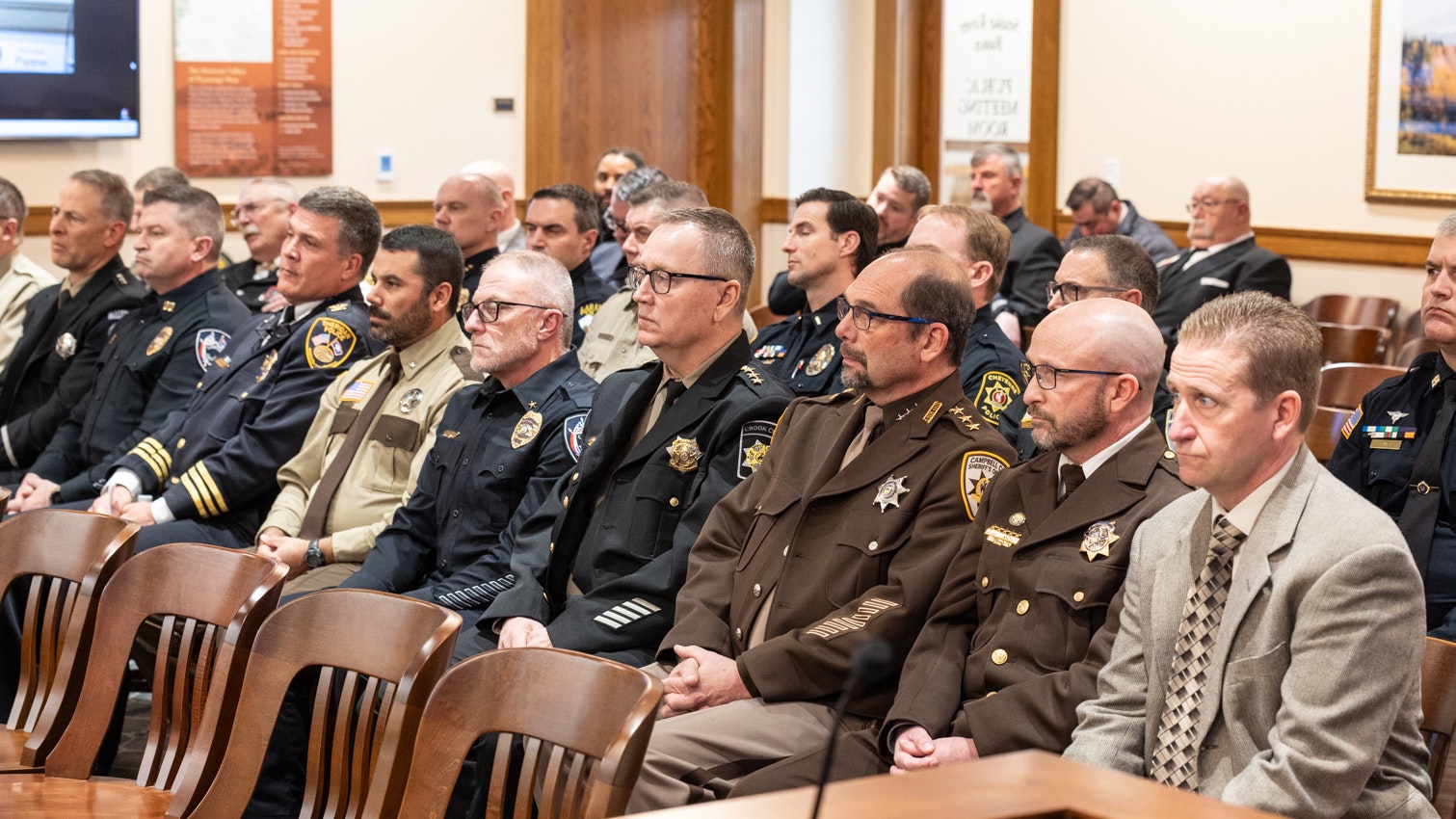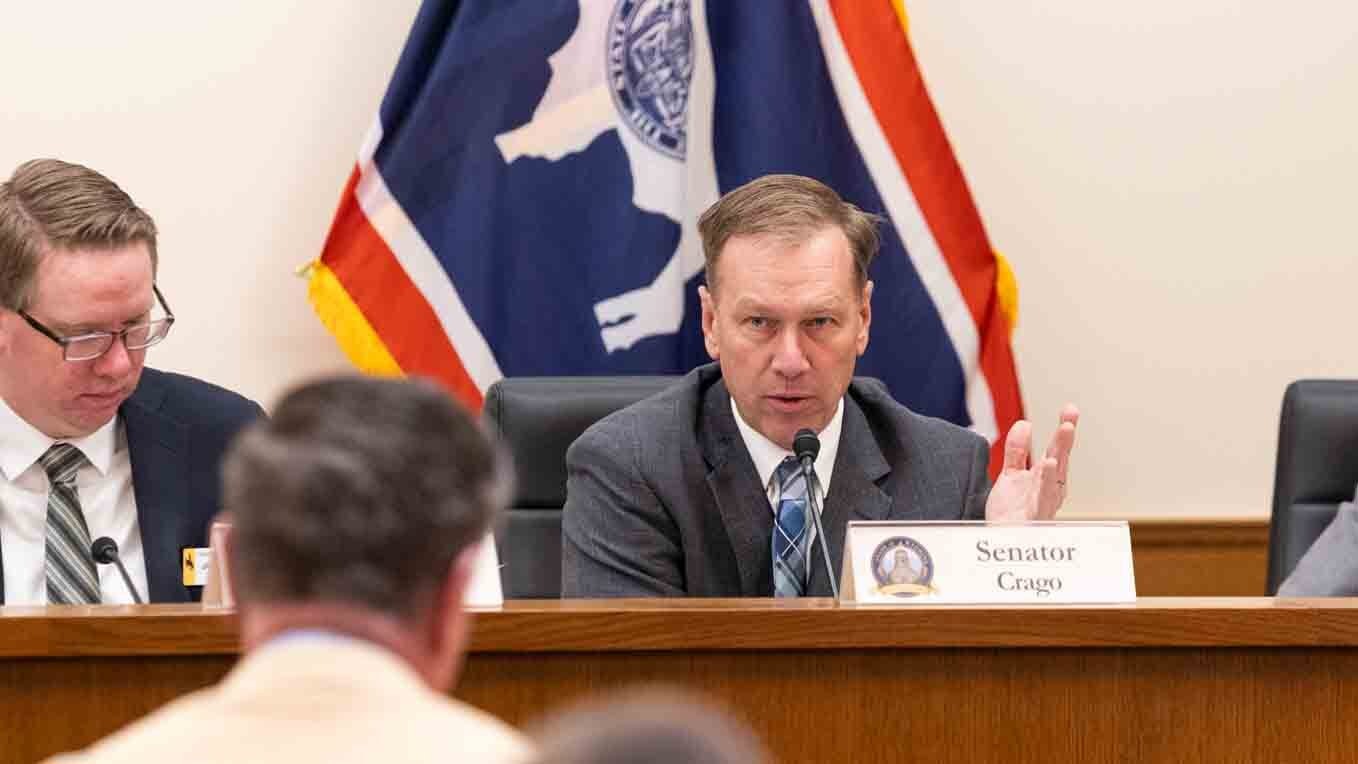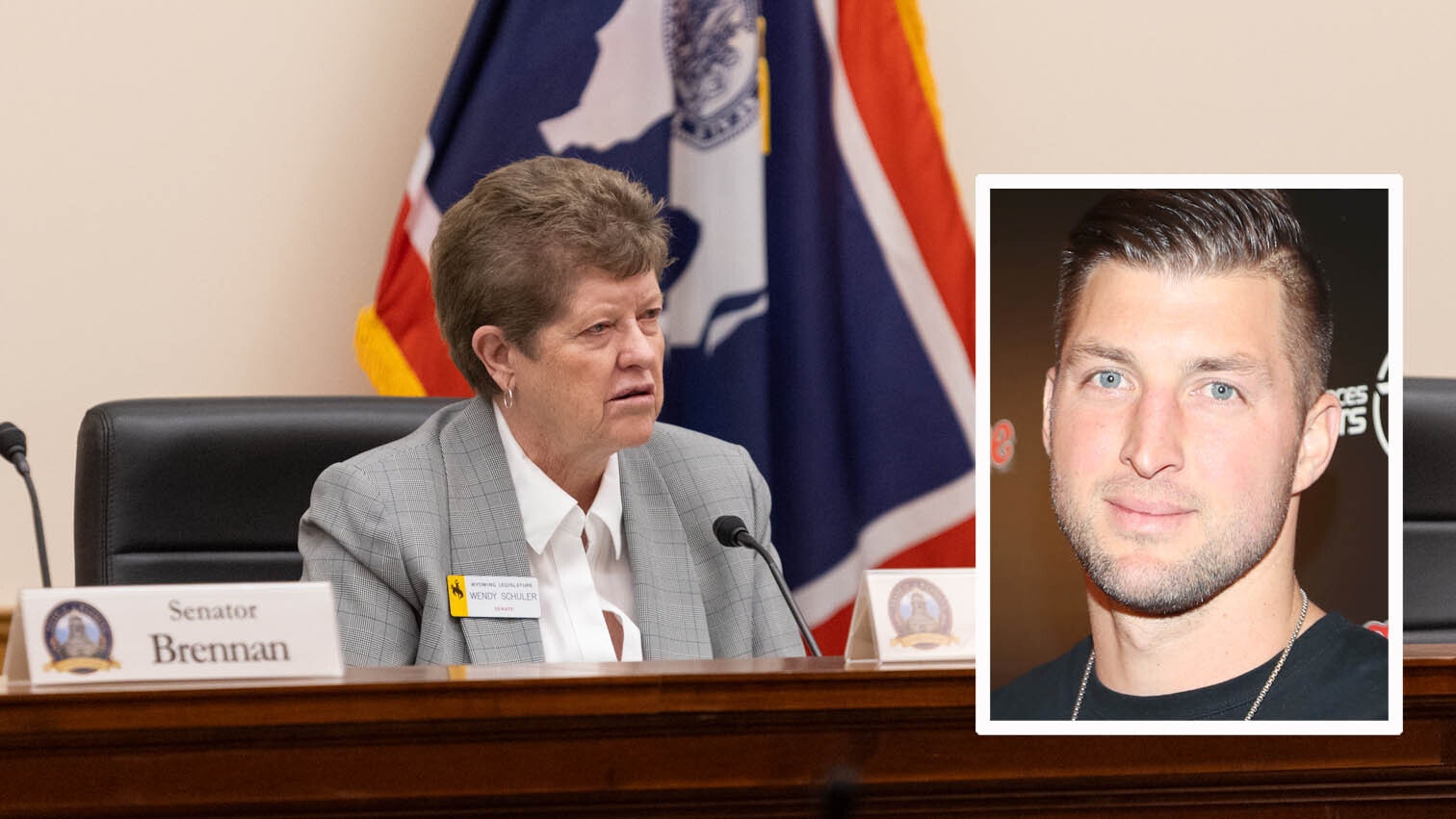A federal judge’s rejection of a lawsuit in which a Rock Springs couple accused their local school district of helping their daughter change her gender identity without their knowledge has revived an old feud between different factions of Republican leaders.
The Wyoming Freedom Caucus, which is a group of Republican Wyoming legislators that emphasizes socially conservative policies, is also vowing to reform the state’s judicial branch -though it recognizes that it can’t change the federal judiciary, from which the controversial ruling emerged. The caucus cited other recent controversial, state-level rulings as pushing it that direction as well, such as two judges' recent labeling of abortion as a health care right.
The Lawsuit
U.S. District Court Judge Scott Skavdahl on Monday ruled in favor of Sweetwater County School District No. 1, and against Sean and Ashley Willey.
The Willeys in a 2023 federal lawsuit accused the school district of helping to socially gender-transition their high school daughter without their knowledge or consent, in violation of their parental rights.
The crux of the lawsuit was whether the school’s actions infringed that right.
Skavdahl’s ruling acknowledges that school staffers called the student by a male name and pronouns and did not tell the Willeys about it for months.
But the school didn’t take active and official steps to hide this, the judge concluded from the evidence.
Requiring the school district to notify parents every time their child switches pronouns could create a “laundry list” of duties for schools to uphold to keep from violating parents’ rights, the judge added.
Strongly opposed to this interpretation, the Willeys have vowed to appeal Skavdahl’s decision.
The Old Argument
The Willeys’ case has been highly significant in Wyoming policy making.
State lawmakers have cited and invoked it numerous times over the past two years while discussing parental rights bills and other social reforms.
In the winter lawmaking session of early 2023, before the lawsuit was filed, Sen. Dan Dockstader, R-Afton, proposed a bill which sought to ban the teaching of concepts like gender transition in kindergarten through third grade. The bill, Senate File 117, also sought to make public schools notify parents of major changes in their children’s lives.
Then-House Speaker Rep. Albert Sommers, R-Pinedale, refused to release the bill onto the House Floor for consideration and it died.
The Willeys filed suit about two months later, April 20, 2023.
The Wyoming Freedom Caucus in a social media post on Tuesday blamed Sommers for the Willeys’ court lossand said the Willeys could have been able to sue in state court if SF 117 had passed.
“When RINOs (Republicans in Name Only) say ‘that’s not happening here,’ it usually is, and ignoring real problems has real consequences,” says the post, which is accompanied by a video of WFC Chair Rep. Rachel Rodriguez-Williams, R-Cody, lamenting Sommers’ decision and urging people to pray for the Willey family.
Sommers in a Wednesday interview with Cowboy State Daily called the WFC’s premise false.
He refused to introduce SF 117 because it was unconstitutional, he said: it violated Wyoming’s rule of having just one topic per bill.
Though he had said at the time that the bill didn’t address real Wyoming issues, Sommers said he was referring to the teaching of gender transition concepts in K-3, not to schools keeping students’ gender transitions secret from parents, Sommers said.
The former House speaker also derided the WFC in a comment under its Facebook post, writing, “More smoke and mirrors from the Freedom Caucus.”
Rebekah Fitzgerald, a lead organizer of WFC’s Republican counterpart and a frequent foe of the Wyoming Caucus, echoed the sentiment in a sub-comment.
“Here’s a thought,” she wrote, “maybe some lawmakers should stop playing politics and start writing better laws, so the Wyoming people who need help actually get it.”
But Would You?
Sommers questioned whether the 2023 bill could have helped the Willeys anyway, since it couldn’t have gone into effect earlier than March of 2023 if it had passed – and would likelier have gone into effect that July.
Most of the harms alleged in the lawsuit happened in 2022.
Ernie Trakas, attorney for the Willey family, told Cowboy State Daily that had it passed, the bill would have left the family with another potential remedy.
“I do think it would have been an option, certainly,” he said, adding that the family believes the school district’s allegedly unconstitutional actions continued into 2023 – and those harms could have become part of the lawsuit.
But it’s hypothetical to look back and reconsider the whole action in light of a law that didn’t exist at the time, he noted.
And Then It Happened
In 2024, months after the Willeys filed suit, the Wyoming Legislature passed two laws heightening the state’s obligations toward parental rights.
One law, brought by then-Rep. Clark Stith, R-Rock Springs, simply reiterates an already-written parental rights law in the context of schools’ communications with parents.
Another, extensive law passed that year requires schools to notify parents of major changes in their children’s lives.
By 2024, however, the Willeys’ daughter was no longer a student at Black Butte High School in Sweetwater County.
Actually, My Bill
Former Rep. Clark Stith, R- Rock Springs, told Cowboy State Daily on Wednesday that it’s “disingenuous” for lawmakers to focus on Dockstader’s 2023 bill as the Willeys’ potential savior when some of them rejected his own parental rights bill that same year.
He said he believes his 2023 bill, House Bill 78, could have helped the Willeys if it had passed.
Rodriguez-Williams was on the House Judiciary Committee which, by unanimous silence when it was time to move Stith’s 2023 bill, declined that January to advance it.
But the committee’s silent rejection came after several minutes of testimony against a different provision of Stith’s bill – not the school communications part of it that would have pertained to the Willeys.
The part of the bill that caused heartburn among meeting attendees that day, rather, sought to expand the state’s parental rights law to its court proceedings like child neglect and parental-rights terminations cases.
Multiple witnesses voiced outrage at that prospect, saying the bill would place potentially abusive or neglectful parents’ interests above children’s best interests.
When Stith removed that language from his bill and brought it back in 2024, it became law, albeit too late to help the Willeys.
The Judiciary
In the wake of Skavdahl’s decision, the WFC is also vowing to reform the judiciary system in Wyoming.
“I would say this case is just another example of why Americans are losing faith in our judicial system,” Jessie Rubino, Wyoming director for the State Freedom Caucus Network, told Cowboy State Daily on Wednesday.
Americans’ confidence in their judicial system dropped to the record low of 35% in 2024, Gallup reported.
State lawmakers can’t affect federal judges like Skavdahl, Rubino noted.
“While this was a federal case, I think it still opens people’s eyes, that the judicial branch needs some looking into,” she said.
And if they want to change the way Wyoming chooses its state judges, legislators will have to win the passage of a constitutional amendment proposition – and the voters would also have to approve that change at the next election.
Currently when there’s a vacant judge position, the Wyoming Bar Association and the governor choose a judicial nominating commission, which in turn nominates three lawyers as candidates.
From those three, the governor appoints the new judge.
District court judges face a yes-or-no retention vote every six years and Wyoming Supreme Court judges every eight years.
It is extremely rare for Wyoming voters to unseat one of their judges.
Rubino said many potential reforms are still on the table. But the WFC is chiefly interested in examining that nominating process – potentially to add a step by which the state Senate would have to confirm the governor’s choices.
“When we talk to people about that, they’re shocked that there’s no public participation in the form of the Senate confirmation,” said Rubino.
A handful of state lawmakers in early 2025 tried bringing a constitutional amendment to make judges run for election. That effort was not officially backed by the WFC.
It also failed.
Rubino said she has not yet spoken with the entire caucus about whether it would consider pursuing judicial elections.
She lamented that the House and Senate Judiciary Committees declined this year to pursue judicial reform as an interim study topic.
Neither committee chairman responded immediately to a late-day request for comment Wednesday.
Clair McFarland can be reached at clair@cowboystatedaily.com.





